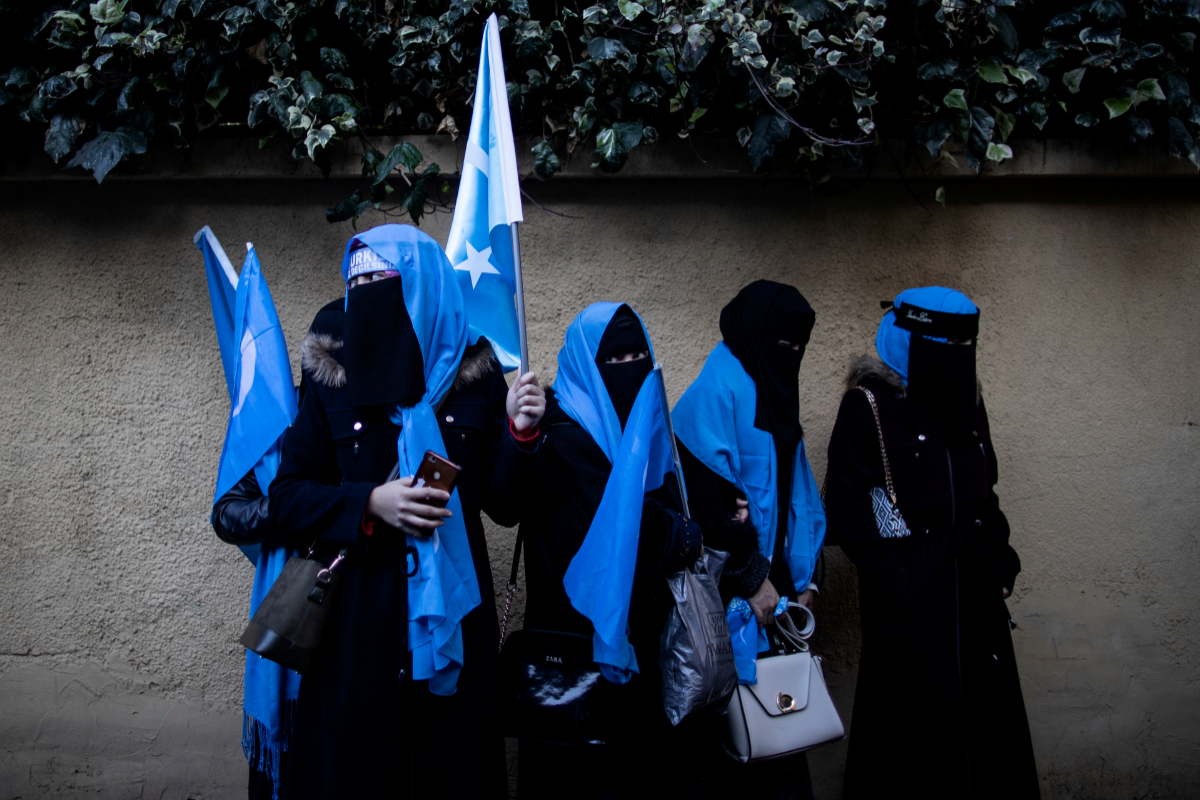- Asia: Forced labor camps where China "re-educates" Muslims
- Repression: The 403 pages leaked from Beijing that reveal Chinese repression against Muslims
- Chronicle: 'Delatoras' houses in the great Chinese digital brother
The Uighur language text libraries established in Istanbul hold the same symbolism for the cause of this Muslim community in western China as their counterparts in Hong Kong who used to sell prohibited publications in the mainland until they were targeted at the repression of Beijing in 2015
As it happened there, the list of vetoed writers or those who have been purged by the regime of the Chinese Communist Party that line the shelves of the small business that Abduljelil Turan runs is so vast that when the journalist inquires about it, the editor responds with irony.
"Better you ask me which are not in jail. 70 percent of these writers are in prison , " he says.
Among the titles and authors that Beijing considers as anathema are, of course, the trilogy "Motherland" by author Zordun Sabir - one of the main references of Uyghur nationalism - but also novels such as "The City Buried Under the Desert" by Memtimin Hoshur or "The Art of Suicide" by Perhat Tursun.
Turan resides in the Turkish city since 1987. In Xinjiang, he worked as a seller of precious stones, but when he exiled to Turkey, he decided to change his profession and as Hong Kong booksellers, he assumed that he should "take a political position." " Publishing books in Uyghur is now a necessary gesture to defend our literature, which is being torn apart by the Chinese regime," he says.
The architect of the Teklimakan Uygur Neshriyat publishing house, specializing in the publication and dissemination of texts written in the vernacular of this Muslim population from Xinjiang, is dedicated to collecting old books that give friends and acquaintances to enlarge the collection of almost 3,000 titles He owns his establishment.
"The books written in Uyghur a year are very few. A dozen or so," argues the bookseller.
The iconography present in the Sutuk Bugrahan bookstore is even more challenging. Here the texts are combined with all the paraphernalia of the Uyghur independence movement: from flags and maps of the disappeared Eastern Republic of Eastern Turkestán, to key chains, rings or wallets with the same badge, along with black and white photos of the founders of that ephemeral state in 1933 , an image that has acquired an iconic character for Uyghur exile. A material that in any part of the territory controlled by Beijing would carry a long prison sentence.
Among the latest publications on their shelves is a text dedicated to the teaching of the Uyghur alphabet.
"Printing books in the Uyghur language is a rarity. We receive only two per year. This bookstore is not a business. We lose money. But it remains open because we have to fight to save our culture, " said Abdulhalil Abithaci, originally from the city. from Kashgar.
The campaign of repression that Beijing has established around the Uyghurs has extended from the beginning to the cultural sphere. The total absence of books in the language of this community in the main local bookstores of Urumqi - the capital of Xinjiang - and Kashgar (which visited this journalist in 2019), adds to the ostracism to which the Uyghur language has been subjected in the Reeducation camps where hundreds of thousands of Muslim adults and children are confined, where teaching Mandarin is a key element of this indoctrination campaign.
The rooms that sell Uyghur texts from neighborhoods in Istanbul such as Zeytinburnu or Sefakoy are part of the social and cultural framework that this community has created in these suburbs, which have become a kind of "capital" in the exile of this minority.
"It's about curbing cultural genocide"
In Zeytinburnu the presence of restaurants, supermarkets or traditional clothing stores with names that evoke the main regions of that territory are a constant in the cobbled alleys that characterize that enclave.
"I witnessed the Cultural Revolution. I had to help the burning of a dozen books written in Uyghur. They forced us to sit on top of the Koran. But even then you could express yourself in Uyghur. Now it's about trying to stop the cultural genocide that promotes China. We must save our language, our identity, "says Yustufhas Hajip, owner of another Uyghur bookstore in Zeytinburnu.
A few streets away, the family of Kalbinur Tursun, settled in the Turkish city since 2016, summarizes the almost epic challenge facing this small Muslim population to keep their culture alive.
The 36-year-old seamstress dedicates several hours a day to two of her children continuing to communicate with each other in Uyghur , to counteract the influence of the Turkish they teach them in school, but little can be done to preserve the language in the case of their others 5 children They were held in Xinjiang by the Chinese authorities and at least one of them ended up in an orphanage controlled by Beijing. Now he expresses himself in a perfect Mandarin - a language he never spoke - as his father discovered in a recent video he found on social media.
"Some brothers study in Chinese, others in Turkish. If they forget Uyghur, how are they going to understand in the future?" The woman complains.
According to the criteria of The Trust Project
Know more- China
- The correspondent's look
HealthResale of masks in Usera due to the high demand for the coronavirus: "They are willing to give anything"
Journal of a besieged city THIS NO Coronavirus from Wuhan: The evacuation of the 'laowai'
TelephonesApple regains the throne of smartphone sales by surpassing Samsung and Huawei

